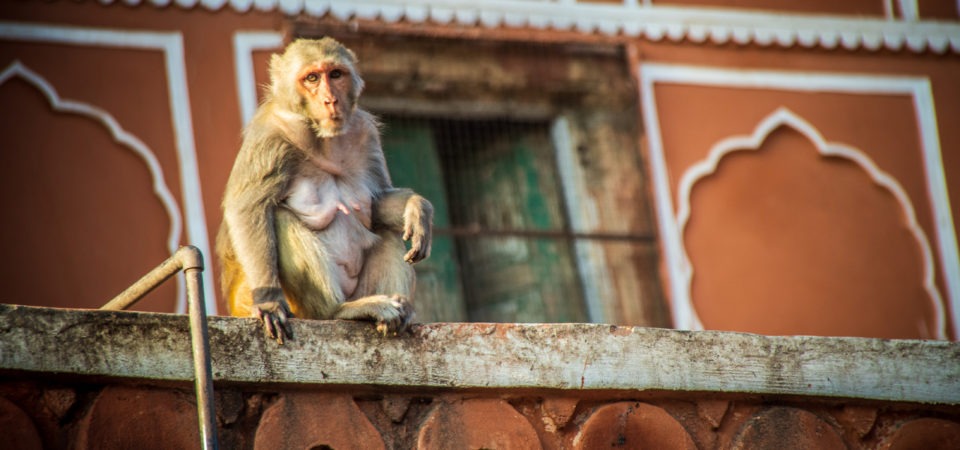Item Link: Access the Resource
Date of Publication: June 24
Year of Publication: 2023
Publication City: New Delhi, India
Publisher: DownToEarth
Author(s): Iqbal Malik
There is a need to create spaces conducive to monkey migration from human habitations.
Rhesus monkeys are native to South, Central and Southeast Asia, including India. They inhabit the northern states on the south of the Brahmaputra and have a wide geographical range of distribution, from grasslands to forested areas, plains and mountain ranges.
However, in the recent past, there has been a decline in natural resources, leading to competition between humans and monkeys and decreased tolerance for coexistence.
Humans began to haphazardly trap and provisioning space to monkeys instead of providing them foraging grounds. In return, monkeys raided and destroyed properties.
The Rhesus monkeys’ daily activity changed. There was exponential growth in their population as the male-female ratio got skewed; not only did the number of females increase, they also attained sexual maturity much earlier than usual.
The human-monkey conflict exposed corrupt practices by administrative, forestry and law enforcement agencies, in which natural food for monkeys got replaced with human food and multilayered forests got converted to shallow forests.
Read the full article here.
The views and opinions expressed through the MAHB Website are those of the contributing authors and do not necessarily reflect an official position of the MAHB. The MAHB aims to share a range of perspectives and welcomes the discussions that they prompt.
